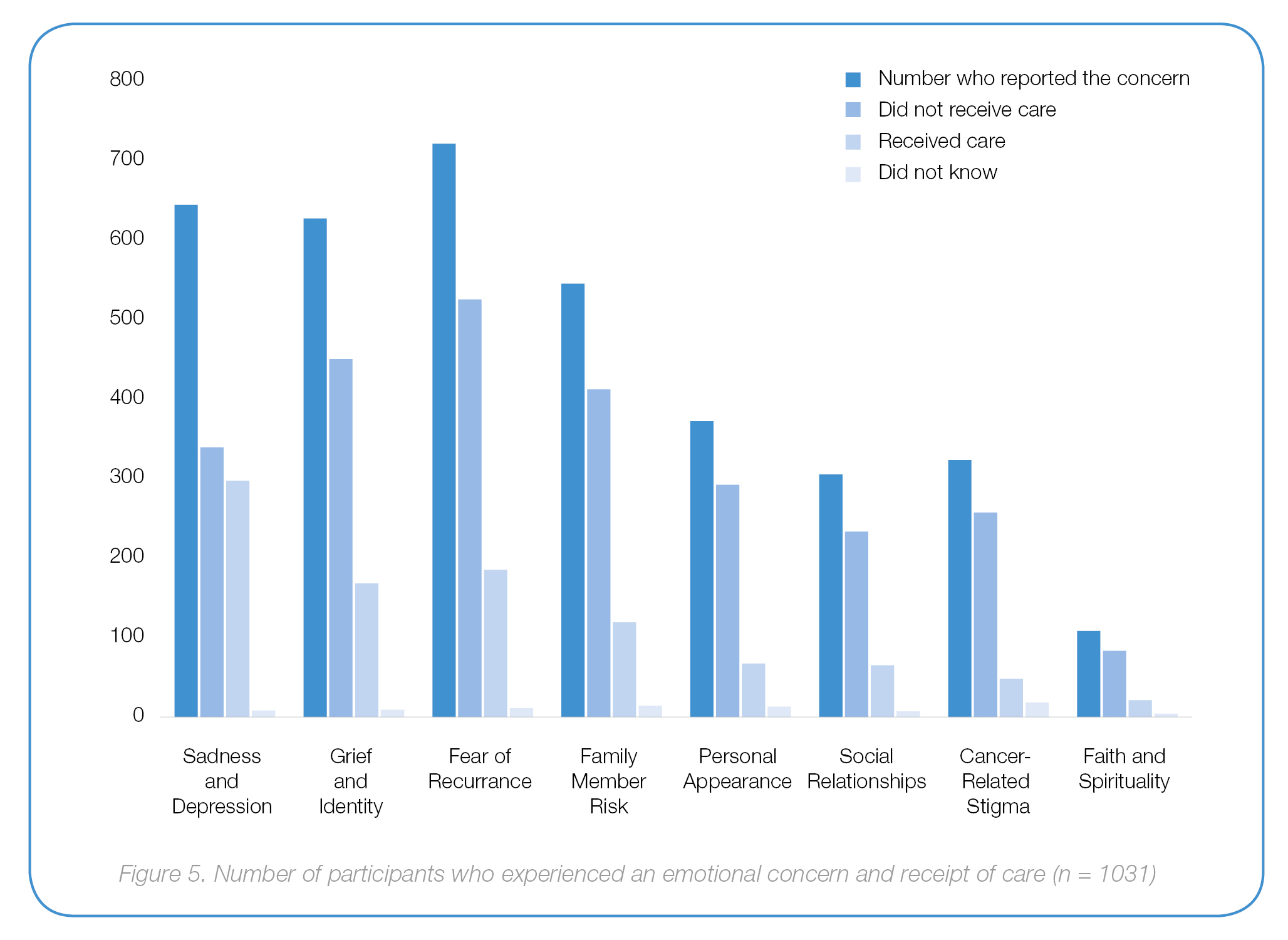-
More Australians are surviving a cancer diagnosis today than at any other time in history, thanks to improvements in cancer prevention, and life-saving advancements in screening and treatment.
But for many survivors, their cancer journey doesn’t finish when their treatment ends. Patients often experience a wide range of side effects —physically and emotionally, for years to come.
Cancer Council Queensland’s recent 1000 Survivor Study highlighted the range of challenges cancer patients experience long after their cancer treatment ended.
The emotional effects of cancer
According to the study, the most common emotional concerns for cancer survivors were a fear of recurrence, issues associated with grief and identity, as well as sadness, depression and anxiety.
The study also highlighted that many former patients felt they did not receive adequate assistance to help manage their emotional concerns.
For breast cancer survivor Madeleine, the fear of recurrence prevented her from being able to enjoy good health following recovery. She was locked in a battle between her competing instincts to constantly seek medical reassurance and her desire to avoid things that reminded her of her experience. This led down a path of constant medical investigations that failed to reassure her about her health for more than a few days.
Seeking help
According to Samantha Clutton from Cancer Council Queensland’s Cancer Counselling Service, while periods of low mood, apprehension and worry are common and tend to subside — many health professionals may overlook signs of more significant distress.
“Our research shows distress is very common in patients recovering from cancer. If you are struggling, it’s important to remember you are not alone, and to seek help.”
Life after cancer


-
If you need support, talk with your GP or contact one of Cancer Council’s information and support line on 13 11 20.
If you're a Medibank member with hospital cover, you can call a Medibank nurse with any health question you or your family may have, 24 hours a day, seven days a week. To speak to a Medibank Nurse 24/7 call 1800 644 325.
-
What causes bad breath?
Find out how to keep your mouth smelling fresh
-
Signs to look out for when a cold is getting more serious
When you should see a doctor for a cold.
-
The health checks to keep in mind at different stages in your life
Have you had these health checks?
-
Bowel cancer: risks, symptoms, diagnosis and treatment
Learn more about bowel cancer
-
Flu myths debunked
Is 'man flu' real? Can you catch the flu from the flu vaccine? We separate flu facts from flu fictions.
-
Where to get health support in Australia
An Overseas Student Health Cover member’s guide to key health services and when to use them.
Subscribe to receive the best from Live Better every week. Healthy recipes, exercise tips and activities, offers and promotions – everything to help you eat, move and feel better.
By clicking sign up I understand and agree to Medibank's privacy policy





